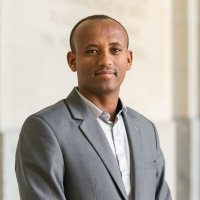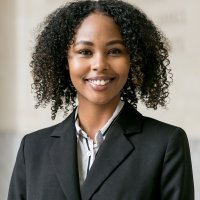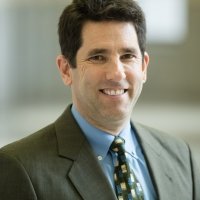WEBCAST | Countering Transnational Organized Crime as a Strategy for Peacebuilding in East Africa
On June 8, 2020, the Wilson Center Africa Program hosted a webcast event on “Countering Transnational Organized Crime as a Strategy for Peacebuilding in East Africa.” Ms. Shahrazad Hired, Africa Program Assistant, offered welcome remarks and introduced the SVNP, under whose banner the event was being held. Mr. Mike Morrow, Africa Program Senior Diplomatic Fellow, moderated the event and Dr. Catherine Kelly, Assistant Professor of Justice and Rule of Law for the Africa Center for Strategic Studies at National Defense University; Mr. Messay Asgedom Gobena, a Southern Voices Network for Peacebuilding Scholar and a Ph.D. Candidate in Peace and Security Studies at the Addis Ababa University Institute for Peace and Security Studies in Ethiopia; Dr. Brooke Stearns Lawson, Senior Conflict, Governance and Crime Advisor at the U.S. Agency for International Development (USAID); and Ms. Gretchen Peters, Executive Director of the Center on Illicit Networks and Transnational Organized Crime (CINTOC) joined as speakers. The event assessed the relationship between transnational organized crime (TOC), conflict, and peacebuilding in East Africa and identified policy options for African and international policymakers and practitioners to more effectively combat TOC and counteract its negative impact on peacebuilding efforts in the region.
Dr. Kelly opened her remarks by assessing the key TOC issues confronting Africa, in general, and East Africa, in particular. Natural resource crimes pose a challenge across the continent, including poaching, oil bunkering, illegal fishing, and illegal mining and logging. She noted that drug trafficking has been a major issue on the East and West coasts of Africa since the late 1990s, and that as the Balkans route has become less viable, East Africa has grown in importance as a drug smuggling route. Other key TOC issues in East Africa include the trafficking of ivory, rhino horn, and pangolin scales; charcoal smuggling; illegal logging; cattle rustling; human trafficking and smuggling; organized theft, especially of vehicles; piracy; and small arms and light weapons (SALW) smuggling. Kelly also underlined the importance of financial crimes that enable TOC, including corruption and money laundering (increasingly through cyber channels). She interrogated the intersection of TOC and peace and security in East Africa, noting that TOC and conflict feed off each other. Looking at the cases of Al-Shabaab and the Lord’s Resistance Army, she noted that armed groups tax TOC organizations operating in their territory for protection, recruit from TOC groups, and sometimes directly engage in TOC themselves. Since TOCs are profit-driven and not bound by governmental responsibilities or national borders, they are highly adaptable and have proven difficult to suppress. In many countries lacking a strong social contract, TOCs can gain the support of populations to whom they offer infrastructure, services, and employment. Kelly offered several policy recommendations to address these issues. She called on African states to enhance inter-agency and cross-border cooperation, noting that the Eastern Africa Police Chiefs Cooperation Organization (EAPCCO) has been under-utilized. Some communities may depend on TOC, so efforts to reduce or eliminate it must also engage with community leaders to develop strategies to combat TOC and provide alternative livelihoods. Kelly recommended that policymakers increase focus on understanding and addressing the place and role of TOC in the local political economy. Kelly’s final recommendation was to focus on addressing crimes that enable TOC such as money laundering and corruption.
Mr. Gobena focused his remarks on three examples of how TOC has intersected with peacebuilding in East Africa, as well as the existing regional and continental anti-TOC frameworks, and the challenges faced in implementing them. He spoke to the experiences of three countries in the region: Ethiopia, Kenya, and Somalia. In Ethiopia, SALW trafficking is intensifying existing ethnic tensions and violence. Gobena credited these tensions, a gun culture, and lax gun-control measures at the borders for the increase in SALW trafficking. In Kenya, he observed that the country has become an important transit-point (and a less-important destination) for drug trafficking. This has undermined peacebuilding efforts by corrupting politics and creating a vicious circle of crime. The main driving factors in Kenya are its status as a major transportation hub connecting Africa and the rest of the world (making it an attractive transit point for illicit goods), corruption in the security and intelligence sectors, and intermingling between politics, business, and crime. In Somalia, Al-Shabaab has used sugar, charcoal, and SALW trafficking to raise about $70-100 million annually to fund its terrorist activities. This has made the organization extremely resistant to traditional military countermeasures. Gobena then interrogated the existing regional and continental frameworks to combat TOC in East Africa. There are regional arrangements through the Intergovernmental Authority on Development (IGAD), EAPCCO, and the Eastern and Southern Africa Anti-Money Laundering Group (ESAAMLG). At the continental level, there is the African Union Mechanism for Police Cooperation (AFRIPOL). Gobena presented several challenges that these regional mechanisms face, including corrupt public officials in member countries, lack of cross-border coordination and cooperation, and insufficient state capacity to prevent and combat the expansion of TOC. He then offered several policy recommendations to address these challenges. He recommended that East African states make a strong commitment to challenge corruption, including by present officeholders. Since TOC is sometimes connected to officials, Gobena called for further engagement of civil society and the media to serve as watchdogs and conduct independent investigations. Finally, Gobena recommended prioritizing the disruption of Al-Shabaab’s business activities before the planned termination of the African Union Mission in Somalia (AMISOM)’s mandate in December 2021.
Dr. Lawson assessed the impact of TOC on development in the region and provided an overview of how USAID is supporting efforts to combat TOC in East Africa. TOC contributes to conflict and undermines good governance, economic prosperity, environmental sustainability, social cohesion, and public health. Lawson then provided a summary of how USAID is combating TOC in the region. She noted that USAID’s approach aims to strengthen the long-term ability of government, civil society, media, and communities to address the underlying factors that allow TOC to flourish by improving transparency, increasing access to justice, improving civilian law enforcement, reducing corruption and fraud, and supporting livelihoods. She provided examples of USAID’s work combating human trafficking in the Democratic Republic of the Congo (DRC); anti-wildlife trafficking efforts in East Africa at the regional, national, and local levels; and private sector engagement to promote responsible minerals trade in DRC and the Central African Republic (CAR). Lawson provided three recommendations to better combat TOC in East Africa. Policymakers cannot rely on a criminal justice/law enforcement approach alone, but must address the political, economic, and social factors that foster organized crime—including corruption. She reiterated Kelly’s recommendation to use a political economy lens to assess the role of TOC in communities, enabling policymakers to break down silos and capitalize on interconnected opportunities. Her final recommendation was to build strong regional platforms and leadership to strengthen policy harmonization and implementation.
Ms. Peters provided an assessment of the relationship between TOC and state capture. To illustrate this relationship, she shared a story about a joint U.S. Drug Enforcement Administration (DEA)-Kenyan Government effort to target the Akasha crime network, based in Mombasa, Kenya. The DEA had arrested the brothers who led the Akasha network and two of their co-conspirators, but had struggled for years to extradite them to the United States. The extradition hearings were continually delayed by procedural issues, with judicial officials doing everything possible to prevent the hearings from taking place. In recordings of undercover meetings with the Akashas, the brothers revealed that they controlled routes of corrupt officials across Africa, enabling the movement of illegal goods across numerous countries—especially through inland Africa. The Akashas ultimately never faced a complete extradition hearing—the Kenyan President decided to bypass the process and order an elite police unit to deliver the defendants to U.S. DEA officials. After their two co-conspirators began cooperating with U.S. authorities, they revealed the extent of their organization’s influence over the proceedings, with nearly everyone involved with the extradition trial being either bought off or intimidated into cooperation. Peters noted that this story illustrates the enormous difficulty of bringing criminals to justice in the context of state capture. Since the Akasha investigation, CINTOC has investigated state capture in Zambia, Tanzania, and Uganda. Assessing these experiences, Peters underlined the enormous detrimental effects of state capture: erosion of public trust in the state, reduced foreign direct investment, and negative impacts on health and transportation systems. In her recommendations, she likened state capture to a cancer that must be dealt with before it becomes endemic. She underscored the need for more whistleblowers to come forward with evidence—including against international corporations involved with state capture. She recommended that authorities consider international pathways to justice—including the International Criminal Court and the U.S. Foreign Corrupt Practices Act—when necessary. She also recommended that policymakers view the fight against TOC, state capture, and corruption as a long-term fight that will take decades to achieve change.
In the subsequent discussion, participants posed questions via Twitter and email regarding the impact of ending AMISOM on Al-Shabaab and TOC, the impact of TOC on vulnerable populations, AU and Regional Economic Community (REC) engagement on counter-TOC efforts, and Al-Shabaab’s supply chain for their illicit goods trade.
The SVNP is a continent-wide network of African policy, research and academic organizations that works with the Wilson Center’s Africa Program to bring African knowledge and perspectives to U.S., African, and international policy on peacebuilding in Africa. Established in 2011 and supported by the generous financial support of the Carnegie Corporation of New York, the project provides avenues for African researchers and practitioners to engage with and exchange analyses and perspectives with U.S., African, and international policymakers in order to develop the most appropriate, cohesive, and inclusive policy frameworks and approaches to achieving sustainable peace in Africa.
Speakers

Ph.D. Candidate in Peace and Security Studies, Addis Ababa University Institute for Peace and Security Studies, Ethiopia

Introduction

Moderator

Senior Foreign Service Officer, U.S. Department of State
Hosted By

Africa Program
The Africa Program works to address the most critical issues facing Africa and US-Africa relations, build mutually beneficial US-Africa relations, and enhance knowledge and understanding about Africa in the United States. The Program achieves its mission through in-depth research and analyses, public discussion, working groups, and briefings that bring together policymakers, practitioners, and subject matter experts to analyze and offer practical options for tackling key challenges in Africa and in US-Africa relations. Read more
